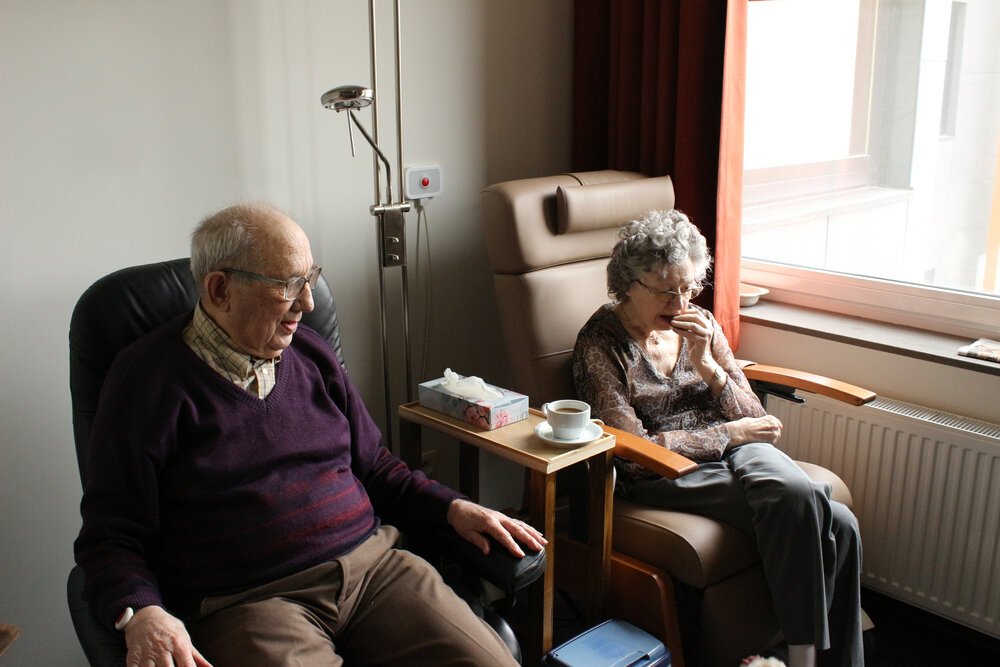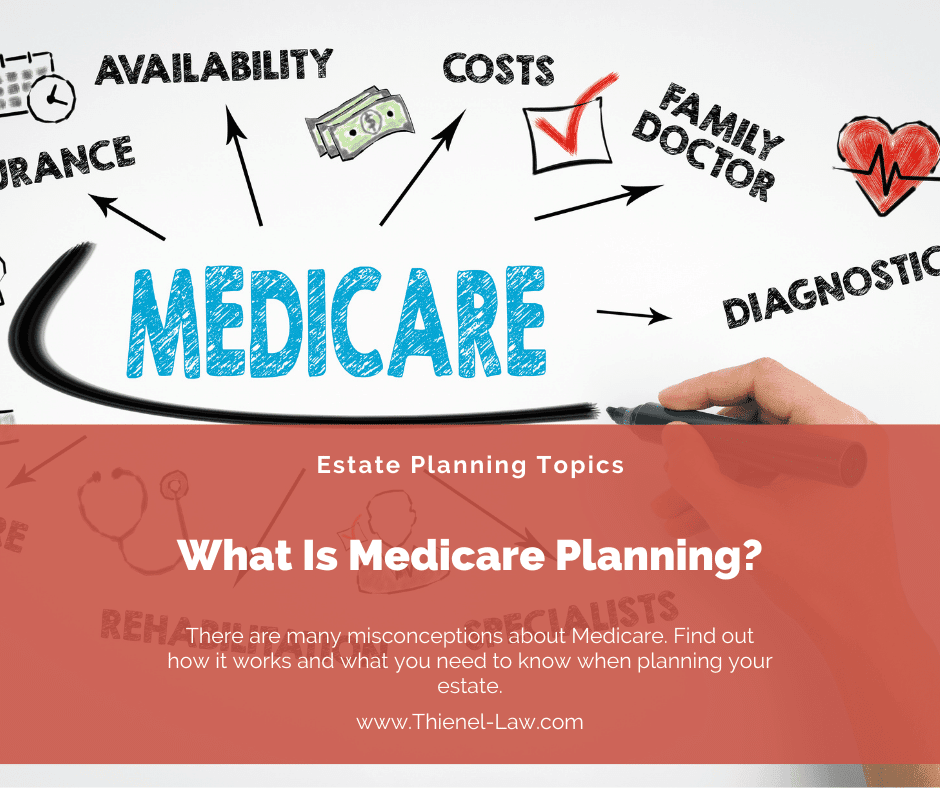
Maryland Elder Law Attorney
Maryland elder law attorney, Steve Thienel is an advocate for seniors and their families. We provide a wide variety of legal services for elderly clients and their family members. An elder law lawyer can help you and your family with a specific legal matter. We can also assist you in preparing a comprehensive plan that protects you, your family members, and your assets now and in the future.
What is Elder Law?
Seniors face unique issues that are often complex and frustrating. Unintended actions could have significant legal and financial consequences. Elder law attorneys in Maryland provide the legal advice, guidance, and support seniors and their families need as they decide and prepare for the next phase of life.
Elder Law Covers Several Areas Of Law That Affect Seniors. Legal Matters In The Field Of Elder Law Include, But Are Not Limited To:
Retirement Planning
Long-term Care Planning, including Medicaid Planning and Disability/Incapacitation Planning
Applying for and obtaining government benefits, including Veterans’ Benefits, Social Security, Disability Benefits, etc.
Elder Abuse and Fraud Cases
Assisted Living and Nursing Home Abuse Claims
Our goal is to help you and your loved one handle the legal matters that affect an aging family member, including the high cost of aging and the issues associated with planning for long-term care.
The High Cost of Aging In the United States
The high cost of aging in the United States is not limited to long-term care. Seniors face increased costs in multiple areas of their lives. For example, the cost of health insurance, prescription medications, healthcare, dietary needs, and assistance with home and personal services is increasing.
However, long-term care continues to be one of the most expensive services necessary to provide care and comfort for aging individuals. The average cost of a semi-private nursing home room was $6,844 in 2016. A home health aide cost an average of $20.50 per hour, and homemaker services were about $20 per hour in 2016.
Those costs continue to increase each year. According to one survey, the cost of a semi-private nursing home room had risen to $7,513 per month in 2019.
Medicare only covers short-term skilled care in very specific situations. Usually Medicare only covers nursing home care for up to 100 days, but the requirements for obtaining coverage for a nursing home stay are strict.
The key to ensuring that you or your loved one has access to skilled nursing assistance when needed is to engage in long-term care planning now. Helped by a Maryland elder law attorney, you can develop a long term care plan that protects your assets while allowing you to receive the skilled nursing care you need.
Long Term Care Planning
What is long-term care? Long-term care can include residing in a nursing home or assisted living facility. It can also include a variety of in-home services, such as in-home nursing services and assistance with personal care and activities of daily living. Family members often provide long-term care services.
However, sometimes, a family member may need additional care or services that family members cannot provide. In those instances, a family member may need to be placed in a nursing home or assisted living facility.
Long-term care planning involves a variety of strategies that give you the resources to pay for nursing home care or assisted care, if needed. Some elements of a long-term care plan may include:
Establishing a Health Savings Account
Purchasing Long-term Care Insurance
Utilizing Veteran’s Benefits
Medicaid Planning
Trust Agreements
Annuities
Federal and State Government Programs
The goal is to develop a plan that preserves assets while allowing the individual to receive the required medical services and personal care required for his or her health and wellbeing. With the right long-term care plan, we can often protect assets for future generations while acquiring long-term care without the fear of Medicaid liens or forced depletion of assets.
Veteran’s Benefits
Some veterans and their spouses may be entitled to benefits that can pay or offset the cost of nursing home or skilled care. Many veterans and their spouses are not aware that they may have long-term care benefits through the Veteran’s Administration.
For example, if you receive a VA pension, you may be entitled to monthly benefits that help pay for assistance with daily activities through the Veterans Aid and Attendance Pensions Benefit program. To qualify for veterans’ benefits that can help pay the cost of skilled care and long-term care, you must be enrolled in VA health care and receive your care from a VA facility.
Unfortunately, applying for veterans’ benefits is not always easy. The VA can be difficult to deal with, especially for individuals focused on caring for an elderly relative. Complicated laws and regulations can be difficult to understand. Appealing a denied claim can be time-consuming and frustrating.
A Maryland elder law attorney can help you understand the process and can explain the veterans' benefits you may receive. An attorney works with you to gather the documents and information to prove eligibility; to monitor deadlines; and, to avoid mistakes that can delay benefits that can pay for long-term care.
Crisis Management — Are You Prepared for Any Situation?
Early planning is one of the best ways to provide the long-term care that your loved one needs. Including a crisis prevention plan in your long-term care plan helps avoid situations in which you feel as if you have no options available to help care for a loved one.
However, life is unpredictable. Crisis situations can take a family by surprise. A sudden illness or accident could cause the need for long-term or skilled care. For example, a family may face a crisis if doctors state that a patient cannot return home alone after a hospitalization or a family member is being discharged from a skilled care facility because Medicare coverage ends.
Another example of a common elder crisis is when a caregiver becomes ill, injured, or dies, and the person receiving care needs immediate attention.
Maryland elder law attorneys are prepared for crisis management. Helped by a lawyer, family members can identify their family member’s short-term and long-term needs and develop a plan to ensure those needs are met.
Because an elder law attorney is familiar with the process and requirements of various government programs, contacting an attorney for senior crisis management issues can speed up receiving benefits and aid. Depending on the situation, an elder crisis management attorney may assist families with:
Powers of Attorney
Social Security benefits
Identifying potential nursing homes
Applying for Medicaid benefits
Insurance claims
Veterans benefits
Estate planning
Healthcare directives
Conservatorships and guardianships
Identifying applicable local, state, and federal programs that may provide much-needed aid and assistance
Our elder crisis management team responds quickly to elder crisis situations. We strive to provide a clear, efficient, workable plan when a situation requires immediate attention.
Ways to Stop Elder Abuse or Neglect
Another common example of a crisis is elder abuse and neglect. Crisis management when elder abuse or neglect is discovered or suspected is crucial. Steps must be taken to protect the senior and hold the parties responsible for the abuse or neglect responsible for their negligence and wrongdoing.
Types Of Elder Abuse
Physical abuse is a common type of elder abuse. However, elder abuse can take many forms. Elder abuse includes:
Physical abuse
Emotional abuse
Verbal abuse
Sexual abuse
Neglect
Abandonment
Financial abuse
Signs Of Elder Abuse And Neglect
One concern many families have with long-term care is the potential for nursing home abuse and neglect. However, elder abuse can occur in other situations. One of the best ways to prevent and stop elder abuse and neglect is to understand the signs of elder neglect and abuse.
Some of the common signs of elder abuse and neglect include, but are not limited to:
Pressure marks, bruises, broken bones, lacerations, burns, and other signs of physical abuse
Changes in finances and missing property
Depression, withdrawal from normal activities, mood changes, anxiety, fear, changes in eating, and sleeping disturbances
Infections or sexually transmitted diseases
Poor personal hygiene, dehydration, or unexplained weight loss
If a senior is in immediate danger or harm, contact the police department and local social services.
When your loved one is in a safe environment, contact a Maryland elder law attorney to discuss legal options. Your loved one may have one or more legal remedies, including receiving compensation for injuries and damages. A civil claim is not dependent upon criminal charges. Your loved one can file a claim even though criminal charges may not have been filed, or the parties were not found guilty of criminal acts.
A monetary award cannot undo the abuse or neglect, but it can help pay for necessary medical care and counseling. It can be used for the person’s future needs and personal care. Pursuing legal remedies for nursing home abuse can also prevent other residents from being abused or neglected by the same parties who caused your loved one harm.
What to Do When a Loved One Dies
Another type of elder crisis that can catch a family by surprise is the death of a loved one. Estate planning can help minimize the crisis. An estate plan, including a will and other documents, can avoid state intervention in a person’s final affairs.
An intestate estate (one in which the person did not have a will) can take longer to complete, add to the cost of finalizing a person’s affairs, and increase the stress after the death of a loved one. Regardless of whether your loved one had an estate plan, a Maryland elder law attorney can help you finalize your loved one’s affairs.
Steps to take after a loved one’s death include:
Inform family members and others of the death.
Choose a funeral home and arrange for the funeral and burial.
Request multiple copies of the certified death certificate.
Secure the person’s property and assets.
Notify the post office to forward mail to the person appointed to administer the probate estate.
Notify the Social Security Administration, Medicare, Medicaid, and any other government agencies that provide benefits to the person.
Locate the person’s original will (if one exists) and other estate documents, including trust agreements.
Gather together important documents, including life insurance policies, deeds, registrations, annuities, retirement accounts, bank account statements, evidence of debts, stock certificates, etc.
Cancel credit cards, memberships, and unneeded services.
Contact a Maryland elder law attorney for assistance in opening an estate and administering the estate and any trusts.
Experience You Can Trust
Each situation is unique. There are many other steps that the family may need to take following a loved one’s death. Maryland elder law attorney Steve Thienel can be a source of legal advice, support, and guidance as you work through each phase of finalizing your loved one’s financial and personal affairs after his or her death. Call us today to learn more. Please contact Steve at Thienel Law for assistance with your elder law needs.















